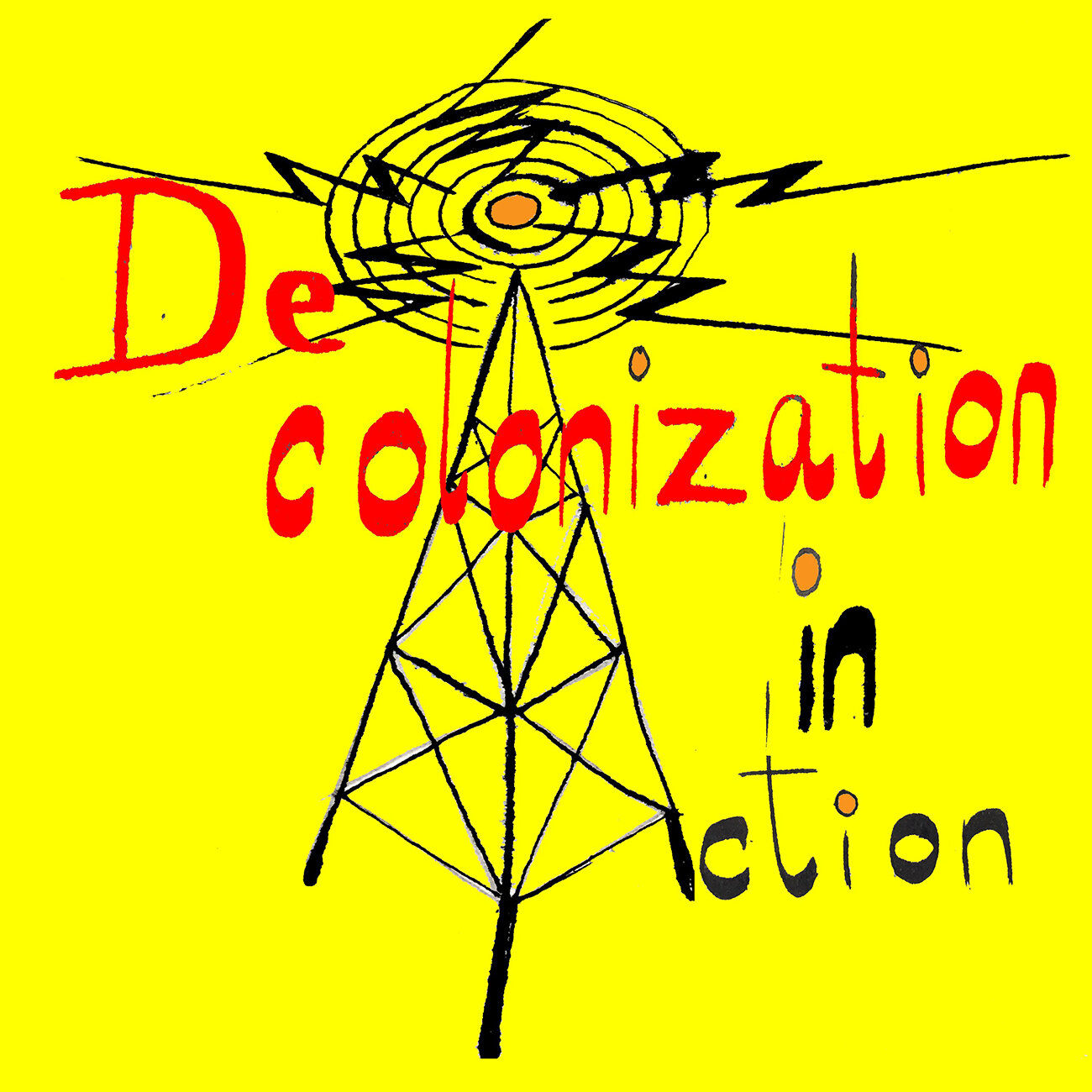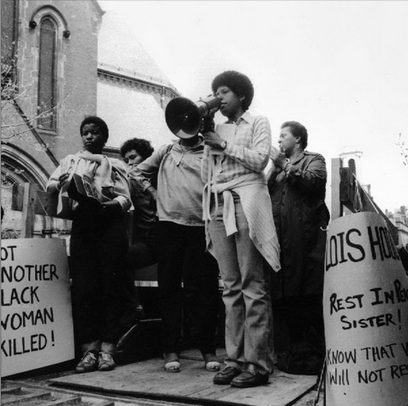Season 4: Episode 1: Listening Sessions with Wendi Muse
“. . . Here, no one teaches another, nor is anyone self-taught. People teach each other, mediated by the world. . .”
—Paulo Freire, Pedagogy of the Oppressed, 2005 [1968] p. 80.
Season 4, Episode 1: Listening Sessions with Wendi Muse
In this episode, Kristyna Comer welcomes back Wendi Muse—creator and host of the Left POCket Project Podcast. This episodes begins with Wendi talking about the need to listen, making reference to Paulo Freire’s Pedagogy of the Oppressed and listening in the context of collective empowerment, anticolonial resistance movements past and present, and for creative work in general. This episode is dedicated to what listening can mean with a special focus on the Left POCket Project Podcast. In addition to talking more about her podcast and the critical histories of leftist people of color the podcast makes available—including her podcast sub-series Reading Revolution and Comrade Mommy—we talk about how Wendi activates anticolonial practices in the very design and expanded forms of her podcast.
Transcriptions for all episodes are available upon request.
biography
Wendi Muse
Wendi Muse is the creator of the Left POCket Project, which makes the histories of leftists of color easily accessible through a variety of online mediums. She is a PhD candidate in History at NYU, and is currently finishing her dissertation regarding the activities of leftist networks formed between Brazilians and Lusophone African activists during their concurrent struggles against dictatorial rule and colonialism, respectively. She also has an MA in Latin American Studies and has lived and worked in Brazil, where, in addition to her current work, she has also conducted research on the black press, black women’s activism in the early 1900s, and political subversion among samba performers during the dictatorship.
The Left POCket Project Podcast
The Left POCket Project Podcast brings you the history of leftists of color, one swipe at a time.
This podcast is hosted by Left POCket Project creator Wendi Muse & her co-host Richard.
Left POCket Project episode links:
Episodes 20–22: A 3-part discussion of Paulo Freire's Pedagogy of the Oppressed for the #ReadingRevolution series of the Left POCket Project Podcast and you can find the book in its entirety here: www.patreon.com/posts/readingrevolutio-23145180
Comrade Mommy series of the Left POCket Project Podcast
Episode 47: From the Reading Revolution series on the Combahee River Collective Statement, a manifesto penned by black lesbian socialists in 1977 regarding the way forward in movement politics.
Episode 43: With creator and host edna bonhomme on medicine, epidemics, and empire in the Middle East and North Africa as well as the current COVID-19 crisis.
For this episode
Here is the earlier interview we had in preparation for this episode in which I sent Wendi a few initial questions on October 6, 2020. A special thanks to Wendi for answering these questions ahead of time.
Kristyna
Can you please introduce yourself and your podcast? And please feel free to share any favorite moments and what brings you joy when making the podcast? What challenges do you experience?
Wendi
My name is Wendi Muse. I am a grad student, researcher, and mother. I am the creator of the Left POCket Project, which began as a booklist at the end of 2016 regarding leftists of color following my utter exasperation with the erasure of the political diversity and ideological contributions on the left by people of color (defined loosely here as non-white) during the presidential election and beyond. I tweeted one book after another under the hashtag #LeftPOC, which people then began to use not only to promote the booklist, but to describe themselves as well. In 2017, I started the project, the name for which is based on the idea that learning more about the histories of leftists of color should be as easy as reaching into your pocket, pulling out your smartphone, and swiping. In 2017, I also started the project's podcast, which I produce and edit myself and for which I now have a co-host (Richard, a fellow black leftist). We interview academics, organizers, and journalists in hopes of bridging the gap between the ivory tower and the larger community on the histories of leftists of color. The podcast is also home to two sub-series: 1) Reading Revolution, a virtual book club and 2) Comrade Mommy, a source for leftist content for parents and kids.
Some of our favorite moments during the podcast are often off the record! We get lots of juicy background stories about what goes on behind the research and activist work of our guests.
I get joy out of knowing that our content has an impact on our listeners and our peers. We often receive feedback from people saying they learned something from one of our episodes and that always means a lot. Generally speaking, we have an incredibly kind and engaged community.
The most challenging aspect of podcasting is usually just scheduling. My own schedule has changed quite dramatically after the birth of my child, but scheduling academics can always be a challenge primarily because I think sometimes people need to be more prepared than they are. The guests we choose are always extremely experienced in their respective fields, but I think a combination of imposter syndrome due to the pressures of academia and a fear of not knowing every single response to questions can give some people anxiety. It all stems from the perfectionism that weighs so heavily on many of us, but in the end, once the interview gets going, people relax and feel more confident. I always tell people: imagine you are giving a lecture to freshmen college students or a 101 class. Some students will know more than others, but the questions will be in good faith and out of genuine curiosity, and we, as hosts, and our audience will appreciate the knowledge you share with us.
Kristyna
How does making a podcast differ from other forms of writing and publishing?
Wendi
It differs wildly from writing because conversation, in large part, is extemporaneous. We prepare quite a bit, often more than some of the most popular and lucrative leftist podcasts, but there is also a more casual aspect to our discussions. This is what we want, to be honest, because we want engagement with history to be a less-intimidating process. We are doing our best to break down the barriers of the ivory tower and make knowledge acquisition a democratic one. As with the advice I give guests regarding the "101" approach to the information they present, that also goes for terminology and the like. We often ask follow-up questions that would not be possible when simply reading a piece. It's also free and open to the public, which so many academic journals (and even journalism these days) are not. Everything has a paywall, and we didn't want such a barrier for our listeners.
Kristyna
How do you sustain the podcast and how do you envision making your podcast more sustainable, especially regarding compensation for all the labor that goes into producing one?
Wendi
Before I launched the podcast, I spoke with some other podcasters on the left whom I knew had models that were less monetarily motivated because I wanted to find out how they stayed afloat despite fees for web storage and the like, and most had patreon pages, which allow for listeners to donate $1 or more a month. While the grand majority of podcasts have some content that is for patrons-only, I knew I wanted to stray from that for the reasons I mentioned above about wanting everything to be free and open to the public. I decided from the jump the only "patrons-only" content I would feature would be an occasional preview of an upcoming episode, but nothing beyond what the general public, whether patrons or not, had access to. I put a lot of my own money into the process in the beginning, but that wasn’t a lot considering I already had a computer and knew how to edit podcasts as I used to have one about electronic music a decade ago.
I then implemented a unique model and one that, to this day, is one-of-a-kind in the podcasting world. I pay my guests a small honorarium then provide a matching donation in their honor to the community organization of their choice. I also pay my co-host and anyone who provides labor to the podcast (so, for example, any transcripting or research done by our assistants) an hourly wage. When we had virtual staff meetings, I paid them for that hour of time. I also use patreon funds to support other leftist podcasters via patreon. Finally, all of our financials are available upon request. I wanted to keep everything transparent and fair from the start.
Kristyna
Does podcasting get acknowledged as a form of publication within academia or how does academia reinforce the hegemonic publishing industry and its hold on knowledge production?
Wendi
Not at all. While some big name academics/academics at big name institutions have certainly started podcasts, many were late to the game and did not acknowledge the power and reach of podcasts until very recently. And, even now, these are seen almost as a recreational activity more than an in-depth process that involves all sorts of knowledge acquisition, interview skills, and the like. I look at podcasting just as I would field interviews, and I think it should be acknowledged as such. I even create a “show notes” bibliography of sorts. The other problem, however, is that resumes and CVs cannot properly capture what goes on in podcasting—whether on the creator, interviewer, or guest end—so some institutions may look to this as less serious than academic publishing, when that it absolutely not the case. It just depends on the podcast. But I know, without a doubt, podcasts like mine and many others reach exponentially more people and can create direct forms of dialogue that written work cannot.
Bibliography
Akinyele Omowale Umoja, We Will Shoot Back: Armed Resistance in the Mississippi Freedom Movement (NYU Press, 2013)
Michael C. Dawson, Blacks In and Out of the Left (Harvard University Press, 2013)
Keeanga-Yamahtta Taylor, ed., How We Get Free: Black Feminism and the Combahee River Collective (Haymarket Books, 2012)
Links
Season 1, Episode 3: Leftism in Action: A History of Leftist People of Color
Listen to edna bonhomme’s interview with Wendi from Season 1!
Show Credits
Interview and post-production
Kristyna Comer
Cover image
From the Left POCket Project
Music
ispeakwaves (384935, Attribution License, Creative Commons), X3nus (450539, Attribution License, Creative Commons)
Thank you
A special thanks to Wendi Muse and decinaction creator and host edna bonhomme.










